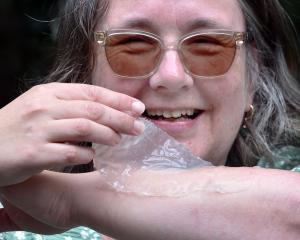
University of Otago department of women’s and children’s health research fellow Nick Bowden led the study which compared the rates of criminal justice system interactions among young adults with and without autism in New Zealand, and explored whether offence types differed between these groups.
Mr Bowden said that prior to the research, little was known about the pathway through the criminal justice system for people with autism.
Despite that, there was a historical belief there was a link between autism and criminal behaviour — a narrative shaped by highly publicised criminal cases and sensationalist headlines, he said.
The researchers studied a birth cohort of 149,076 people born in New Zealand between July 1, 1992 and June 30, 1995.
Health data was used to identify 1197 individuals with autism, and criminal justice system data was used to explore interactions with police, courts and prison for all these people between the ages of 17 and 25.
The study found young people with autism had significantly lower rates of criminal justice system interactions, including being proceeded against by police, charged in court and convicted in court, compared with those without autism.
However, if they were charged in court, they were more likely to face charges of serious and violent offences, offences against the person, offences against property and be imprisoned compared with those without autism.

He said the research team wanted to provide much-needed data and shed light on the experiences of young people with autism who come into contact with the criminal justice system.
Department of women’s and children’s health assistant research fellow Joanne Dacombe, who has autism, co-authored the study.
She said people with autism often faced stigma and discrimination, and the research had the potential to remove some of that.
"Historical misconceptions have been damaging, allowing stigma to be perpetuated, with autistics often facing hostility as a result.
"This can increase anxiety for autistics and their whanau."
She said harmful misinformation created a reluctance to hire people with autism or invite them to societal groups, and led to bullying.
"Without good evidence to debunk the misinformation, it can be continually perpetuated, which is why this type of research becomes important."












